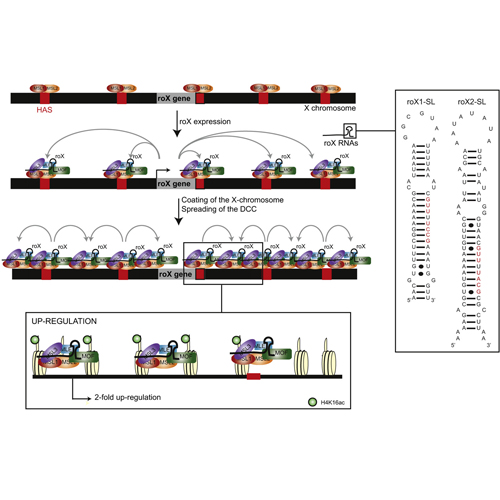Roles of long, non-coding RNA in chromosome-wide transcription regulation: Lessons from two dosage compensation systems
08-Jan-2012
Biochimie, 2012, doi:10.1016/j.biochi.2011.12.026, Volume 94, Issue 7, Pages 1490–1498 published on 08.01.2012
Biochimie, online article
Biochimie, online article
A large part of higher eukaryotic genomes is transcribed into RNAs lacking any significant open reading frame. This “non-coding part” has been shown to actively contribute to regulating gene expression, but the mechanisms are largely unknown. Particularly instructive examples are provided by the dosage compensation systems, which assure that the single X chromosome in male cells and the two X chromosomes in female cells give rise to similar amounts of gene product. Although this is achieved by very different strategies in mammals and fruit flies, long, non-coding RNAs (lncRNAs) are involved in both cases. Here we summarize recent progress towards unraveling the mechanisms, by which the Xist and roX RNAs mediate the selective association of regulators with individual target chromosomes, to initiate dosage compensation in mammals and fruit flies, respectively.











